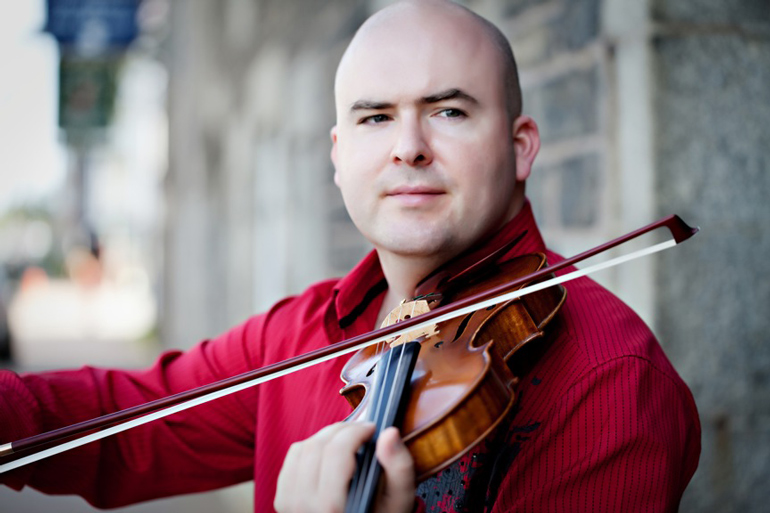
Toronto Summer Music Festival and Academy: The Hollywood Connection with violinist Mark Fewer pianist John Novacek, baritone Peter McGillivray, and others. Walter Hall, Friday.
“The Hollywood Connection” was the hard-to-justify title of the second evening of the Toronto Summer Music series. Artistic director Douglas McNabney did his best to produce an explanation after intermission in Walter Hall. I was content to view the chamber program on Friday as an interesting mix and take it from there.
Four of the five selections qualified as rarities. Most considerable of these was Erich Wolfgang Korngold’s 32-minute Piano Quintet Op. 15 of 1922. Long before this composer reached the shores of America, he was writing in the lavish style that he later cultivated as a film composer.
There were a few structural landmarks in the first movement (notably the second theme, played elegantly by cellist Denise Djokic) but most of the score came off as central-European improv. Instruments sometimes moved en bloc rather than polyphonically. Was this chamber music or orchestral music run through a compression program? Either way, I fear the piece will remain on the outskirts of the repertoire.
Korngold based the variations of the second movement on his own Mond, so gehst du wieder auf, an art song of wide ambitus and romantic sentiment (not that any non-German speaker would know, for the words were not provided). Baritone Peter McGillivray sang it, wonderfully, as a prelude to the quintet. Its many extensions into tenor and bass territory occasioned not a moment of stress.
McGillivray was our soloist also in Samuel Barber’s setting of Dover Beach, a famous poem by Matthew Arnold (again, no text). His tone was less focused here, although the ardent feeling came through and the string quartet played with precision.
These players were heard at the start in Dvorak’s familiar “American” String Quartet, done decently if a tad swiftly. The concerted sound was balanced rather than blended: violinist Axel Strauss was pushy on top, Djokic demure on the bottom. Violist Paul Coletti made the best impression with his rich, oaky sound.
The other violinist was Mark Fewer, who joined pianist John Novacek in George Antheil’s Violin Sonata No. 2 of 1923. This eight-minute exercise in avant-garde honky-tonk seemed to include everything but the kitchen sink (and ended with Fewer playing with his back to the audience while Novacek tapped on a couple of drums).
I found its apparent anarchy deceptive: Motifs did return, including a folksy lick that sounded like an outtake from the Dvorak. Violinist and pianist alike played the bits and pieces with the necessary gusto but also enough musical sense to make them seem connected. Crazy like a fox, this Antheil. It would be great to hear the sonata again before the festival is over.
There was a fair bit of talking from the stage. Not all the information was accurate. TSM program notes are of good quality. They should be enough.
#LUDWIGVAN
Want more updates on Toronto-centric classical music news and review before anyone else finds out? Get our exclusive newsletter here and follow us on Facebook for all the latest.
- SCRUTINY | Moussa Concerto Sounds Strong In Toronto Symphony Orchestra Premiere, Paired With Playful Don Quixote - April 4, 2024
- SCRUTINY | Esprit Orchestra At Koerner Hall: Ligeti 2, Richter No Score - April 1, 2024
- SCRUTINY | Sibelius & New Cello Concerto By Detlev Glanert Offers A Mixed Bag From The TSO - March 28, 2024



